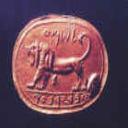Yahoo Answers is shutting down on May 4th, 2021 (Eastern Time) and beginning April 20th, 2021 (Eastern Time) the Yahoo Answers website will be in read-only mode. There will be no changes to other Yahoo properties or services, or your Yahoo account. You can find more information about the Yahoo Answers shutdown and how to download your data on this help page.
Trending News
In "The New World Translation of The Holy Scriptures" Should JOHN 1:1 Say That The WORD Was "A" GOD, OR "GOD"?
1)
MANY (not all) various Bible translation versions at John 1:1 read:
"In the beginning was the Word, and the Word was with God, and the Word was God."
However
#2)
The New World Translation of The Holy Scriptures Bible version at John 1:1 reads:
"In [the] beginning the Word was, and the Word was with God, and the Word was a god."
The difference is...
#1) Shows John 1:1 to convey the thought that the Word [Jesus Christ in his pre-human existence] is in fact ALMIGHTY God.
#2) Shows John 1:1 to convey the thought that the Word [Jesus Christ in his pre-human existence] is in fact NOT ALMIGHTY God, but rather, "a" god.
Which one is correct in conveying the proper thought?
BEFORE you jump the gun, consider for a moment the following thought.
What IF there was in existence TODAY, an actual Bible translation that was written in a language that was spoken in the EARLIEST centuries of our Common Era which dated well BEFORE the 4th century? An actual Bible translation that was written in a language which was spoken in the centuries IMMEDIATELY following Jesus’ earthly ministry?
IF ONLY such a Bible translation were in existence TODAY. Such a translation would be able to supply POWERFUL evidence as to how John 1:1 would have been properly and correctly understood way back then.
Most truly I tell you....
THERE IS IN FACT SUCH A BIBLE TRANSLATION IN EXISTENCE TODAY!
It is called the SAHIDIC COPTIC TEXT and it is on display at the Chester Beatty Library. I encourage ALL to review the following very brief 3 minute, 17 second presentation, which presents the UNBIASED truth regarding this remarkable find!
I ask that BEFORE you supply your answer/ thought / comment and or opinion, that you FIRST review the brief unbiased presentation (this will make it so that your answer is NOT biased) and THEN kindly return back and provide your NON-RUDE answer.
Again, my question is simple. In "The New World Translation of The Holy Scriptures" SHOULD JOHN 1:1 say that the Word was "a" god, OR that the word was "God"?
This question is OPEN to ALL FAITHS.
******************************
PLEASE STAR THIS QUESTION NOW, SO THAT OTHERS WILL BE ABLE TO SHARE THEIR THOUGHTS AS WELL.
Thank you kindly in advance.
******************************
Here is the brief presentation, REMEMBER to return back here to leave your answer to the above question:
*******
EDIT
*******
To "Data Soong": Sir, it is written in the sacred book of Psalms:
"The LORD said to my Lord, Sit you at my right hand, until I make your enemies your footstool."
- Psalms 110:1
(American King James Version)
Tell me sir are BOTH of the Lord's mentioned here "THE" LORD ("THE" GOD... Almighty God), OR is just one?
Are BOTH of the Lord's mentioned here the Lord Jesus Christ, OR is just one?
If just one (as the Scripture in which you quoted from Deuteronomy most definitely IS absolutely correct), which one, and what would would that make the OTHER Lord mentioned at Psalms 110:1?
╔╗╔═╦╗
║╚╣║║╚╗
╚═╩═╩═╝
"J.P" what are you talking about?
The Bible translation which refers to the Word as the Logos at John 1:1 is "A New Translation of the Bible (1934), by James Moffatt" (among others) which reads and I quote:
"The Logos existed in the very beginning, the Logos was with God, the Logos was divine."
Please sir, kindly get your facts straight. Strongly asserted ignorance, is still ignorance nonetheless.
:0)
16 Answers
- JedidoctorLv 51 decade agoFavorite Answer
This is an important question. Here are two translations.
John 1:1 "In the beginning the Word was, and the Word was with God, and the Word was a god". New World Translation
John 1:1 1 "In the beginning was the Word, and the Word was with God, and the Word was God". New International Version
the facts are on the side of the New World Translation. It is very interesting that the ancient Coptic translations of John 1:1 do not render it “the Word was God,” as is common in many English versions, but “the Word was a god,”, just as found in the New World Translation by Jehovah's Witnesses. The Coptic versions precede the New World Translation by some 1,700 years, and were produced at a time when the Koine Greek of the Christian Greek Scriptures was still a living language.
Source(s): One of Jehovah's Witnesses. - Anonymous5 years ago
In Koine Greek, there is no indefinite article ("a"); in the absence of a definite article ("the") an indefinite article is often rightly assumed, but while there is no definite article in front of "God" in John 1:1, we shouldn't assume an indefinite article. The text reads literally: "Ἐν ἀρχῇ ἦν ὁ λόγος, καὶ ὁ λόγος ἦν πρὸς τὸν θεόν, καὶ θεὸς ἦν ὁ λόγος." In beginning was the word and the word was with the God, and God was the word. John has done a good job of constructing this sentence so that he both declares Christ to be God while also affirming that Christ and the Father are not the same person. Had he said that the word was THE God, with a definite article, he would have called Jesus and the Father completely the same, which we know is not the case. But if they aren't the same, why not call "the word" (Jesus) another god? Look at the second clause specifically (καὶ θεὸς ἦν ὁ λόγος. - and God was the word.) Note that John has put God, not the word, at the beginning of the clause. This is how a speaker of Koine added emphasis to a word, as if to underline it. So John is emphasizing Jesus' Godhood while still separating his personhood from the father, not creating a polytheistic plurality of Gods. Had he switched the order and put "a god" at the end of the clause, then the indefinite article assumption might have been a little more reasonable. The context of the whole of scripture should be an adequate guide to answer the question however, as there is only one God, and there could be no legitimate "a god." The NWT also makes many obvious interpretive errors and should not be trusted in general. For example, it erroneously inserts Jehovah every time the Greek clearly says "lord." This demonstrates the obvious biases of the translators in favor of a certain theological view.
- 1 decade ago
For Jay Smithereens:
Actually, there is no anarthrous nominative noun in John chapter 1 which lacks the article but is translated with a definite meaning in the NWT. The NWT translators were not inconsistent.
You seem to be working with the assumption that all five Greek noun cases handle the use of the article the same way. They do not. Because of the nature of the nominative case, it almost always requires the article to be considered definite in meaning. As for your example, the word "god" in John 1:6 is in the genitive case, which freely dispenses with the article, even when definite in meaning. John's usage of the article is consistent with other first century Koine Greek writers.
As for the Sahidic Coptic translation, the translators did not "drop the article," they "added" the Coptic indefinite article - a - just like the NWT translators did.
It is irrelevant what the Coptic church believes today, since they didn't translate the Sahidic NT, nor do they still use it. The Copts who translated the Sahidic Coptic NT obviously didn't believe in the Trinity. Their translation was made before the Council of Nicea - at least 100 years before - long before "orthodox" Trinitarianism had taken hold. This is shown in other Sahidic Coptic texts. For example, John 8:58, John 10:33, Titus 2:13, 2 Peter 1:1, are actually more similar to the NWT than to other leading English translations of today.
- Anonymous1 decade ago
John 1:1, 2:
RS reads: “In the beginning was the Word, and the Word was with God, and the Word was God. He was in the beginning with God.” (KJ, Dy, JB, NAB use similar wording.) However, NW reads: “In the beginning the Word was, and the Word was with God, and the Word was a god. This one was in the beginning with God.”
Which translation of John 1:1, 2 agrees with the context? John 1:18 says: “No one has ever seen God.” Verse 14 clearly says that “the Word became flesh and dwelt among us . . . we have beheld his glory.” Also, verses 1, 2 say that in the beginning he was “with God.” Can one be with someone and at the same time be that person? At John 17:3, Jesus addresses the Father as “the only true God”; so, Jesus as “a god” merely reflects his Father’s divine qualities.—Heb. 1:3.
Is the rendering “a god” consistent with the rules of Greek grammar? Some reference books argue strongly that the Greek text must be translated, “The Word was God.” But not all agree. In his article “Qualitative Anarthrous Predicate Nouns: Mark 15:39 and John 1:1,” Philip B. Harner said that such clauses as the one in John 1:1, “with an anarthrous predicate preceding the verb, are primarily qualitative in meaning. They indicate that the logos has the nature of theos.” He suggests: “Perhaps the clause could be translated, ‘the Word had the same nature as God.’” (Journal of Biblical Literature, 1973, pp. 85, 87) Thus, in this text, the fact that the word the‧os′ in its second occurrence is without the definite article (ho) and is placed before the verb in the sentence in Greek is significant. Interestingly, translators that insist on rendering John 1:1, “The Word was God,” do not hesitate to use the indefinite article (a, an) in their rendering of other passages where a singular anarthrous predicate noun occurs before the verb. Thus at John 6:70, JB and KJ both refer to Judas Iscariot as “a devil,” and at John 9:17 they describe Jesus as “a prophet.”
John J. McKenzie, S.J., in his Dictionary of the Bible, says: “Jn 1:1 should rigorously be translated ‘the word was with the God [= the Father], and the word was a divine being.’”—(Brackets are his. Published with nihil obstat and imprimatur.) (New York, 1965), p. 317.
In harmony with the above, AT reads: “the Word was divine”; Mo, “the Logos was divine”; NTIV, “the word was a god.” In his German translation Ludwig Thimme expresses it in this way: “God of a sort the Word was.” Referring to the Word (who became Jesus Christ) as “a god” is consistent with the use of that term in the rest of the Scriptures. For example, at Psalm 82:1-6 human judges in Israel were referred to as “gods” (Hebrew, ’elo‧him′; Greek, the‧oi′, at John 10:34) because they were representatives of Jehovah and were to speak his law.
- How do you think about the answers? You can sign in to vote the answer.
- angelmusicLv 71 decade ago
Jay S asks about John 1:6 --
God in that sentence does not stand alone as "God". But the word referred to is "of God".
Compare John 1:12 where the same word is translated "God's" or "of God".
But I would like to point out several translations of John 1:18 which don't match the Greek -
Greek - God no one has seen at any time; only-begotten god the (one) being into the bosom of the Father that (one) explained.
King James - No man hath seen God at any time; the only begotten Son, which is in the bosom of the Father, he hath declared him.
New International Version - No one has ever seen God, but God the One and Only, who is at the Father's side, has made him known.
NOW THE NEW WORLD TRANSLATION -
No man has seen God at any time; the only-begotten god who is in the bosom position with the Father is the one that has explained him.
Why did the King James substitute Son for god? Why not do that in John 1:1?
And the New International Version - it honestly does NOT MAKE sense.
But the New World Translation was very true to the translation of the Greek.
Which is what an honest-hearted person will find when they examine the NWT.
Source(s): One of Jehovah's Witnesses - badgerLv 41 decade ago
I use the New World Translation, its the best and most accurate. In the case of John 1:1 the translation "a god" is a fair rendering, but probably not as accurate as a couple others. For instance : An American Translation renders the phrase, “And the Word was divine.” This clearly shows that Jesus, as the Word, was divine, possessed god like qualities. This is in keeping with Col. 1:15, that Jesus is the image of Almighty God Jehovah. Again, he was god-like, possessed godly qualities, but was absolutely not God.
The KJV rendering "was God" is clearly a travesty, a bad translation by those predisposed to believing in a weird three headed god.
- 1 decade ago
Modern Greek scholars, even some Trinitarian scholars, admit that the anarthrous *theos* at John 1:1c predicates quality, not identity. It is describing a quality about the Word, not the identity of the Word. Anyone who wants to confirm this can just read the grammar books.
As for the Bohairic Coptic text, used by the modern Coptic church, it ALSO says "the Word was a god" at John 1:1c:
Qen tarch nepisaJi pe ouoH pisaJi naFch Qaten fnouT ouoH neounouT pe pisaJi.
*neounouT pe pisaJi*, translated literally, says "a god was the Word" in Bohairic Coptic, just like *neunoute pe pSaje*, translated literally, says "a god was the Word" in Sahidic Coptic. This can also be translated to say "the Word was divine," but it cannot be translated to say "the Word was God." Such a translation of *theos* or *noute* as definite rather than indefinite, violates the grammar and syntax of both the Greek and the Coptic sentences.
For additional, please see:
http://nwtandcoptic.blogspot.com/
The modern Coptic church teaches the error of the Trinity, but the ancient Coptic version was not produced by the modern Coptic church. The Sahidic version was produced a century before the church adopted the doctrine of the Trinity, and it is faithful to the Greek text, not to later tradition.
The Coptic church was traditionally founded by the evangelist Mark. Nowhere is a Trinity taught in the Gospel of Mark.
Source(s): The HOLY Bible - Anonymous1 decade ago
The rendering given by the New World Translation is claimed to be valid by the Witnesses due to the word "theos" (in English, "the God") being anarthrous in the koine Greek. In koine Greek all nouns appear with an article as they do in languages like Spanish. When for some reason they do not, which is rare, they are referred to as being "anarthrous."
Because this anarthrous noun preceeds the verb, they claim that koine Greek grammar demands the word "theos" to be rendered as a predicate noun (in English "a god"). Normally they would be correct.
However, the author of John doesn't use an article for "theos" in various places throughout this gospel, especially in the first chapter. For example John 1:6 also has the occurance of "theos" WITHOUT the article and preceeding the verb. Instead of translating it as a predicate noun ("a god"), the translators show themselves inconsistant and translate it as a proper noun: "There arose a man that was sent forth as a representative of God," according to the New World Translation.
This happens again and again in the original text either because the author of John was somewhat unlearned in the finer points of koine Greek grammar or, most likely, since the gospel writers themselves were developing the language into a more venacular form the writer felt they had the liberty to dismiss the need for an article.
Now for the anarthrous rule to apply, the writer has to do this sparingly. Otherwise if it is a rule of thumb for the writer to dismiss this and do so often, as the author of the gospel of John does, then the rule doesn't stand, and the nouns are not to be rendered as predicates.
As for the Sahidic Coptic text, the copiests where merely repeating what occured in the Greek version which drops the use of the article as explained above. Besides, its Bohairic dialect continues to be the liturgical language of the Coptic Orthodox Church of Alexandria which embraces the belief in the Divinity of Christ as does mainstream Christianity. Use of the grammatic rules in ancient languages was not as absolute as they are today, and this is reflected in the way the Coptic Church continues its stance on the Divinity of Christ despite the fact that in their tongue an article is not used in the above mentioned text.
- KarlLv 71 decade ago
Only God can reveal the meaning of his word, the bible. So if we want to know the truth we must ask God to show us meanings and give us understanding or we just guess.
If I wanted to know something written is spanish, I would go to someone that speaks spanish and ask them what it means so that I may understand what it says. Or I could look at it, not understanding, then say it means this or that: not knowing spanish, I could try to make it mean whatever i wanted, though this would not be the right interpretation. Many do this with the bible, it is God's word and only God can tell us the meaning of things and give us understanding of somethings too. Or we just guess. hope this helps and take care.
- Mommy of 3Lv 51 decade ago
I think that Jehovah's Witnesses need to stop spending so much time arguing mute points and more time figuring out what the scriptures are actually trying to say.
I don't have any knowledge of kione greek, but I have studied the Kingdom Interlinear translation as well as other interlinear.
I find it odd that you JW's always want to cry that their bible is so superior, yet always have to try to find "support" from other bibles when theirs is lacking.
Your KIT omits the article in the greek in John 1:1.
Now, I will admittedly say that I don't (at this time) believe that Jesus is Jehovah. But, that being said, I cannot deny the fact that Jesus holds a VERY high position in heaven, much higher than an archangel as I was taught as a witness, this FACT is VERY clear from the scriptures when they are taken at face value and not twisted to mean what the organization wants them to mean.
Whether or not John 1:1 should be translated "a God" or "God" is mute, because one who is really trying to study the scriptures and just not trying to prove "themselves, and their beliefs" correct, should be asking, "What makes Jesus "a God"?
Is not Jehovah "a God" as well?
Does the appearance of this article or lack thereof really change the meaning of the scripture?
Why is Jesus called "Mighty God" (with no Presence of an article) in Isaiah, when the only other occurrence of this title goes to "Jehovah"?
Romans 10:9 calls Jesus "ha·’a·dhohn′" which your own bible admits means the "True" Lord and only refers to Jehovah.
*** Rbi8 p. 1568 1H “The [true] Lord”—Heb., ha·’A·dhohn′ ***
The title ’A·dhohn′, “Lord; Master,” when preceded by the definite article ha, “the,” gives the expression ha·’A·dhohn′, “the [true] Lord.” The use of the definite article ha before the title ’A·dhohn′ limits the application of this title exclusively to Jehovah God.
As a student of the bible I feel these questions are pertinent and I seek answers for them and I think all Jehovah's Witnesses should think outside the Watchtower magazines and look to the scriptures for these answers as well. Instead of trying to dig for support and dissect verses to try to change meaning or have the bible say something other than what it has already made clear to you previously







